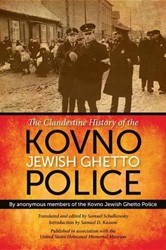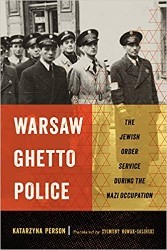One of the cruelest parts of Nazi Germany’s attempted genocide of European Jews was its special focus on eliminating all Jewish children. Even before mass transports to death camps like Auschwitz-Birkenau began in earnest, measures were put in place that forbade Jewish women to give birth to Jewish babies.
This was the situation in the Kovno ghetto in 1943, when Dr. Jonah Friedman and his wife, Tzila, discovered that after years of longing, Tzila was pregnant with their first child. The couple, who did not survive the war, took great measures to hide Tzila’s pregnancy and have the baby, a daughter named Elida. When it became clear to the parents that there was no escape for them, they made the heart-wrenching decision to smuggle three-month-old Elida through the ghetto fence to a stranger.
For Elida, this was only the beginning.
Part of what makes The Forbidden Daughter so interesting is that, though it begins with the Holocaust, most of the book depicts the lifelong struggles that survivors faced. By the time Soviet troops liberated Lithuania in the summer of 1944, the Nazis had murdered roughly ninety percent of Lithuanian Jews. Statistically, those who survived would be considered “lucky,” but Jakob’s book demonstrates that luck does not always equate to happiness.
The Forbidden Daughter follows Elida through postwar ups and downs, including her being sold by the loving family that sheltered her during the war; her adoption by fellow survivors, whose own trauma sometimes led to abusive behavior; the complicated dynamic of the extended family who found her as an adolescent; the lifelong identity crisis that resulted from all of this turmoil; and her tragic death in a terrorist attack on TWA Flight 840, which was bombed over Athens, Greece. As the author poignantly puts it, Elida was “born in fire and died by fire.”
These low moments are punctuated by moments of love, success, and beauty. Jakob does an excellent job of depicting the emotional, mental, and physical ramifications that survivors like Elida dealt with their entire lives — an area of Holocaust studies that has been receiving more attention as of late. The Forbidden Daughter is a valuable contribution to Holocaust literature that shows what happens to the inner self amid tragedy.





